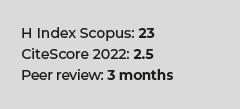Nutritional traffic light system for processed foods: qualitative study of awareness, understanding, attitudes, and practices in Ecuador
DOI:
https://doi.org/10.17843/rpmesp.2017.341.2762Keywords:
Food labellin, Consumer behavior, Ecuador, Nutrition policy, Qualitative researchAbstract
Objectives. To analyze awareness, understanding, attitudes, and practices related to the nutritional traffic light system (NTLS) on processed food packaging in Ecuador. Materials and methods. 21 discussions were held in focus groups (FG) in populations of various sizes in the coastal, mountainous, and eastern regions. Nine interviews were conducted with key informants (KI) representing large, medium, and small enterprises producing or selling processed foods. Results. There were 171 FG participants, the majority of whom recognized and understood the NTLS. There was a certain amount of discussion around awareness of the NTLS and purchasing attitudes, and other factors such as taste, brand, or accessibility were considered. Attitudes were different between age groups: while the group of five- to nine-year-olds knew little about the NTLS and preferred homemade foods, the group of 15- to 19-year-olds was indifferent to the NTLS information and placed more value on other features, such as taste. Practices related to the purchase and consumption of processed foods highlighted seven different strategies that ranged from replacing the product to ignoring the NTLS information. The KIs did not agree with the policy, but they acknowledged having amended the content of some products to reduce fat, sugar, and salt. Conclusions. The NTLS has had a positive effect on awareness and understanding of the content of processed products. Practices related to purchasing and consuming processed foods would be improved by promotion of the nutritional labeling policy, trade control, and the monitoring and surveillance of its implementation.



























